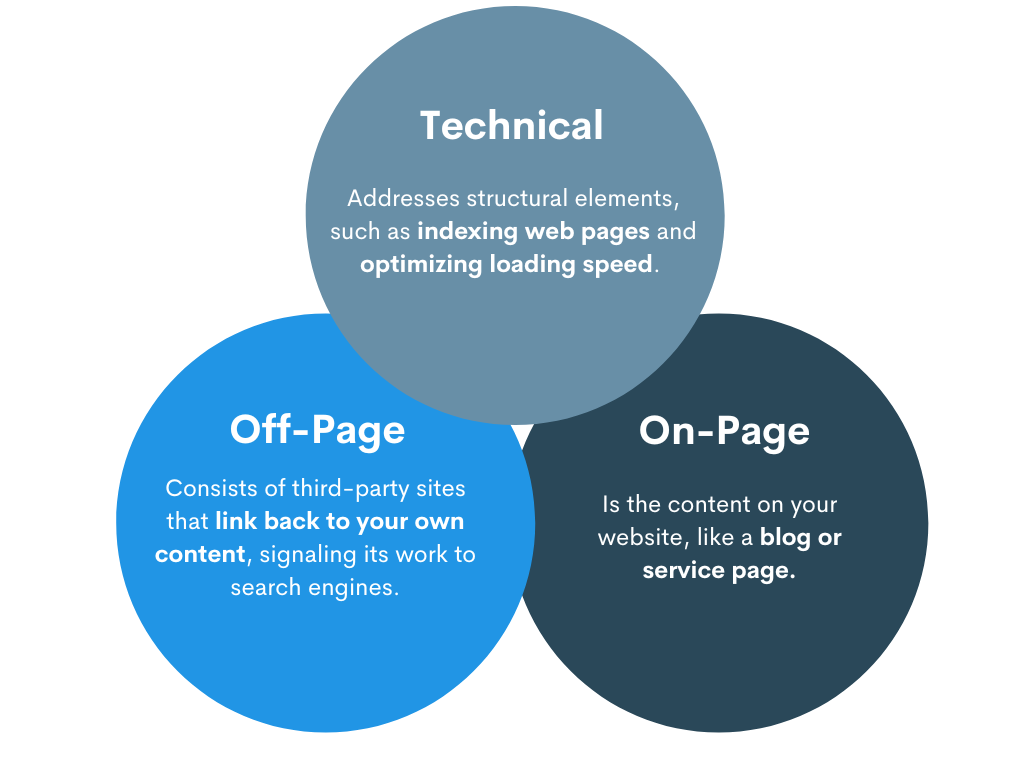Organic SEO is a powerful way to gain authority in your industry. But how do you improve something that happens naturally?
Contrary to what the name implies, there are many ways you can influence the organic search traffic that comes from search engine optimization. If you’re trying to boost your SEO strategy, you want to keep organic SEO techniques in the mix.
Most people are familiar with the term “organic SEO.” But coming up with a definition can be a bit confusing.
We prefer to define organic SEO by its results. Organic SEO strategy engages in activities that help your online content show up in search engine ranking. In other words, when you have good organic SEO, Google search and other search engines place the links and metadata from your content higher on their search engine results pages.
Organic SEO is a critical behind-the-scenes element of any effective digital marketing campaign. Once again, when done properly, organic SEO leverages the power of things like hyperlinks, keywords, search intent, and Google Analytics data to optimize your web assets.
Many people talk about organic SEO in terms of website traffic. But it also includes related items like CTR (clickthrough rate — that is, how often people who see your links click on them), heat mapping (where a person navigates to on a web page), and dwell time (how long a visitor spends on a site).
Higher CTR means more traffic. Heat maps can help you position on-page content for optimal conversions. Higher dwell time means your giving visitors the content that they’re looking for.
When you track and optimize all of these organic search engine optimization elements, you can dramatically increase the impact of your digital marketing investments and your position in a search result.
As you might expect, organic SEO happens organically. At least, that’s how it appears when compared to something like PPC (pay per click) advertising, where you pay for each click that your google ads and links generate.
In contrast, organic SEO happens simply because you’ve optimized your content marketing enough for search engines to find it and offer it to searchers as a potential answer for their related queries. That means a search engine like Google is directing visitors to your content not because you paid for that traffic, but because of the content itself.
While this appears “organic” on the surface, organic SEO is actually powered by fantastically sophisticated algorithms. These use certain indicators, such as user behavior, a keyword phrase, and backlinks, to decide what content to offer searchers.
That means, if you know enough about how those algorithms respond to certain inputs, you can create content that is specifically primed to attract organic attention — something referred to as organic search techniques.
There are many techniques you can use to improve your organic SEO. These typically fall into three categories:

Here are some of the most common SEO tips and techniques that you can use to take your organic search traffic to the next level.
Start by making sure (or hiring an SEO company to make sure) your site’s structure is sound. Test everything from website speed to navigation, mobile-friendliness, and accessibility.
When creating content, consider the keywords that you should include. This doesn’t mean you should stuff your content with the same words over and over again. You always want to prioritize the user experience first. However, make sure you’re also deliberately using the best words and phrases related to your topic. Some upfront keyword research is key here.
The customer is always right. It’s a mantra used in sales — and it applies to SEO, too. What are your website visitors looking for? Say they search “work out” in an attempt to learn more about exercising. They’ll likely want something more informative than if they search the term “running shoes to buy.” Fashion quality content around the intent with which they’ll search for those answers online to be the most helpful.
Backlinking (also called “external linking”) is a powerful way to boost your website’s authority via other authoritative websites. This happens when you get a brand mention or have a hyperlink that points back to your site (or ideally both) on high authority publications. This digitally associates your brand with their pre-established search engine prowess, boosting your own site’s rankings in the process. It also signals to Google that whatever you have linked is a helpful resource, all of which Google appreciates.
Hyperlinks can also help your organic SEO right on your website. Internal links take place when you link to various pages across your site within your own content — like this. Think of internal links like a spiderweb. As you criss cross the various threads of your content, it strengthens the authority of the entire website, in addition to making it easier for users to find helpful information.
Organic SEO is the lifeblood of many companies. As such, you don’t want to leave such an important part of your business to the whims of the interweb.
Use the suggestions above to weave organic SEO techniques into your larger digital marketing strategy. That way, over time, you will strengthen your website’s natural presence on the web and establish your brand’s high quality content as an authoritative and popular source of solutions for your audience.